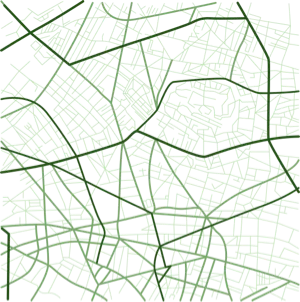Viewing Cities as Living Organisms for Sustainable Growth
Urban metabolism is an emerging concept that envisions cities as living organisms—an idea with practical
implications beyond mere theory. By adopting this model, urban planners can better understand and
redefine city systems in a circular, sustainable way. Just as a living organism relies on its
environment, city life depends on its interaction with local and global resources. A city's "metabolism"
represents how it consumes these resources, and a faster metabolism leads to greater consumption—often
resulting in farmland and forest loss, biodiversity decline, and increased traffic and pollution.
The Forum is dedicated to studying the full range of technical and socio-economic processes that drive
growth, energy production, and waste management in cities. With a focus on urban metabolism, The Forum
aims to develop and implement frameworks that assess how cities consume and manage resources. Central to
its concerns is the analysis of Material Flows, tracking the movement of materials through urban
systems. By examining these processes, The Forum seeks to provide insights that can guide sustainable
urban development and improve the efficiency of resource use in cities.














